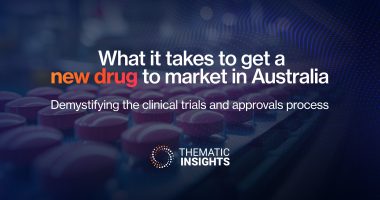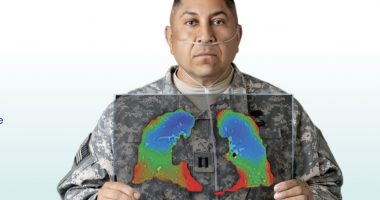- Incannex Healthcare (IHL) has received positive results from a study in sepsis-associated acute respiratory distress syndrome (SAARDS)
- SAARDS is the leading cause of death associated with COVID-19, brought on by runaway immune response which can cause organ and tissue damage
- The results of the in vitro study confirmed the company’s expectations of the anti-inflammatory properties of cannabidiol and hydroxychloroquine
- The company aims to pin down the optimal dosages of each drug in a combination therapy which will inhibit the inflammatory response with minimal side effects
- Once the dosage data is received, the company will move onto the phase two ‘in vivo’ study in animals
- Incannex Healthcare closed Wednesday’s session 1.6 per cent higher at 6.5 cents
Incannex Healthcare (IHL) has received positive results from a study of its IHL-675A treatment in sepsis-associated acute respiratory distress syndrome (SAARDS).
The results of the in vitro study confirmed the company’s expectations of the treatment’s anti-inflammatory properties.
Novel combination
The IHL-675A treatment incorporates cannabidiol and malaria drug, hydroxychloroquine.
The study tested the drugs separately to assess the optimal dosage ranges for each.
The positive news is both drugs at high doses completely inhibited cytokine production.
A so-called “cytokine storm” is the body’s runaway inflammatory response to infection which can be responsible for organ and tissue damage. The storm can result in SAARDS — the leading cause of death associated with COVID-19.
Diminishing this response could also be a valuable therapeutic measure in a number of conditions aside from COVID-19, including lung, urinary tract, stomach, and skin infections.
The study found increasing doses of cannabidiol and hydroxychloroquine showed a linear reduction in the cytokines produced, meaning the dosages directly correlated with the reduction.
This relationship will help nail down optimal doses of each drug in the formulation of the combination therapy to be used in future in vitro and in vivo studies.
Next steps
It’s hoped the positive results for both drugs will help formulate a treatment which has the greatest anti-inflammatory benefit while minimising potential side effects.
Incannex is soon expecting additional in vitro results from the experiment which will assess the optimal fixed-dose combination.
Those results will inform the dosages administered in the phase two in vivo study in animals.
Incannex Chief Scientific Officer Dr Mark Bleackley says the company is pleased with the early results.
“The potent anti-inflammatory activity of both CBD and HCQ is encouraging for the development of IHL-675A in prevention and treatment of sepsis-associated ARDS,” Dr Bleackley said.
There is currently no registered treatment for SAARDS.
The race is on to find a new standard of care in response to the deadly symptoms associated with COVID-19.
Incannex Healthcare closed Wednesday’s session 1.6 per cent higher at 6.5 cents.





